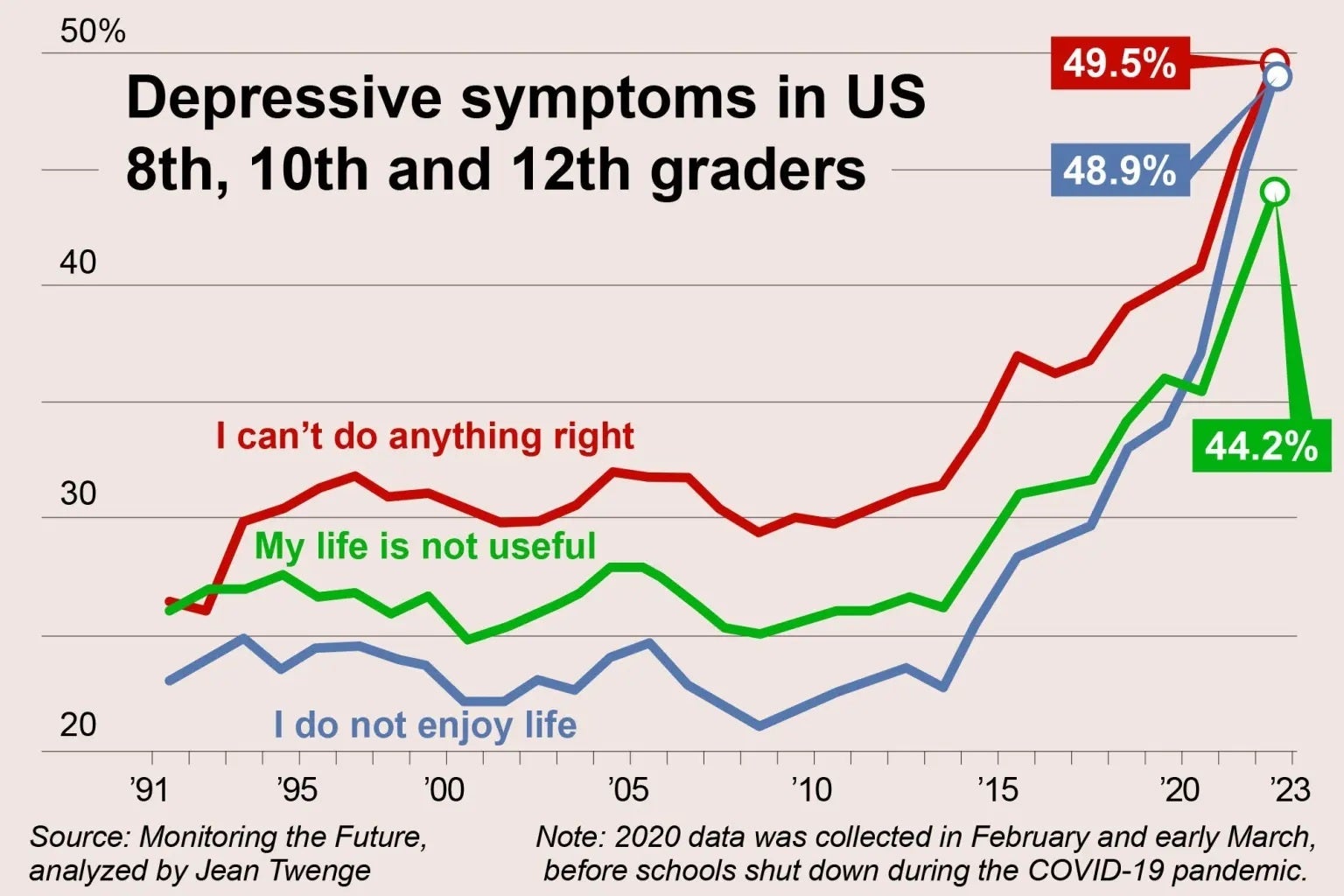To back up his statement about children’s phone-based existence, he points out that teen girls are spending 20 hours a week on social media which makes browsing and posting on these platforms a part-time job for these girls. The book will be out on March 26th and Haidt says that the combination of smartphones and social media is causing children to suffer from sleep deprivation, social deprivation, attention fragmentation, addiction, and spiritual degradation. The psychologist calls this the “great rewiring” of childhood.
Smartphones and social media are making kids depressed and anxious

8th, 10th, and 12th graders are showing signs of depression
The professor says that he has found a link between heavy social media usage and poor mental health outcomes in girls. He writes, “For boys, the story is less clear. There’s no one smoking gun. They’ve just experienced a progressive withdrawal from the real world, where boys have historically exerted effort.” He adds, “The trend is really accelerating as the virtual world becomes so magnificently enticing and attractive.” When boys do withdraw from the real world, their destinations are often porn and video games states the psychologist.
Haidt says kids shouldn’t get a smartphone until they are 18
He suggests that parents keep their kids off of social media until they are 16, and keep them away from smartphones until they are in high school. “We have to delay the phones but also give them engaging activities in the real world. [Parents] have under-protected children online but we’ve also overprotected them in the real world. And we need to address both halves. Kids need to be anchored in the real world with real relationships, real responsibilities, real love. Virtual activities don’t substitute.”
Haidt’s book offers many solutions for parents and he told The Post, “We can solve this problem most of the way within a year if we just work collectively. These are collective action problems, and we can solve them with collective action, even if we don’t get help from our lawmakers.”
The professor says that members of Gen Z have been receptive to what he is saying. “They see the problems of their phone-based childhoods. They see that it’s a huge waste of their time. But when I ask them why they don’t get off TikTok and Instagram, they say they can’t because everyone else is on them.”
